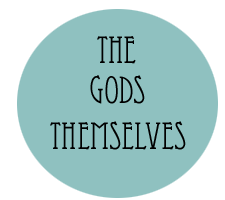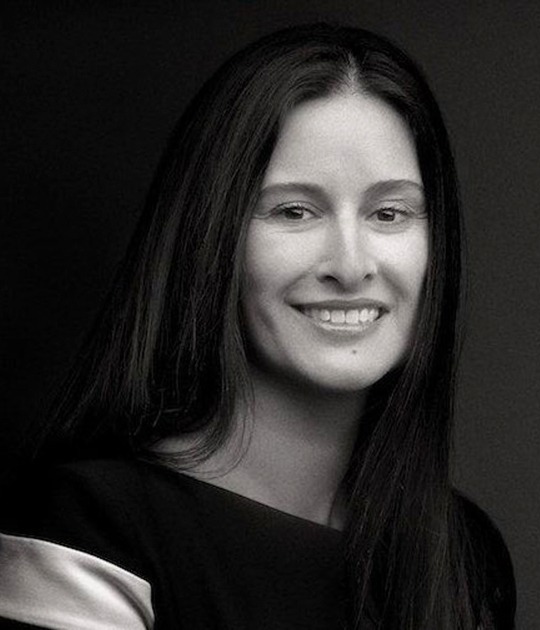Isaac Asimov was born in Russia in 1920 and died in New York in 1992. The Gods Themselves is a book I read when I was 15, and when someone asks me my three favorite books definitely named. Three stories in principle unrelated ending giving each other a complete sense. Each describes a world, different in terms of the perception of space. Today in METALOCUS share an extract of the last of three parts, which he developed on the Moon.
 "Selene's quarters were small, of course, and compact; but they were intricate. The windows were panoramic; star scenes that changed slowly and very randomly, never having any relationship to any real constellation. Each of the three windows could be made to undergo telescopic magnification, when Selene so desired. Barren Neville hated that part of it. He would tend to turn it off rather savagely and say, "How can you stand it? You're the only one I know who has the bad taste to do such a thing. It's not as though these nebulae and star clusters exist, even." And Selene would shrug, coolly, and say, "What's existence? How do you know the ones out there exist? Besides it gives me a sensation of freedom and motion. May I have that in my own quarters if I choose?" Then Neville would mumble something and make a halfhearted attempt to restore the controls to where he had found them and Selene would say, "Let it go!" The furniture was in smooth curves, and the walls were abstractly decorated in low-key, unobtrusive colors. Nowhere was there any representation of anything that might be considered a living thing. "Living things are Earth," Selene would say, "not the Moon.""
"Selene's quarters were small, of course, and compact; but they were intricate. The windows were panoramic; star scenes that changed slowly and very randomly, never having any relationship to any real constellation. Each of the three windows could be made to undergo telescopic magnification, when Selene so desired. Barren Neville hated that part of it. He would tend to turn it off rather savagely and say, "How can you stand it? You're the only one I know who has the bad taste to do such a thing. It's not as though these nebulae and star clusters exist, even." And Selene would shrug, coolly, and say, "What's existence? How do you know the ones out there exist? Besides it gives me a sensation of freedom and motion. May I have that in my own quarters if I choose?" Then Neville would mumble something and make a halfhearted attempt to restore the controls to where he had found them and Selene would say, "Let it go!" The furniture was in smooth curves, and the walls were abstractly decorated in low-key, unobtrusive colors. Nowhere was there any representation of anything that might be considered a living thing. "Living things are Earth," Selene would say, "not the Moon.""
.../...
"She was leaning over the railing. "They call this the Moon's playground," she said. The Earthman looked down. It was a large cylindrical opening with pink smooth walls to which metal bars were attached in what seemed a random configuration. Here and there, a bar stretched across a portion of the cylinder, sometimes across its entire width. It was perhaps four or five hundred feet deep and about fifty feet across. No one seemed to be paying particular attention either to the playground or to the Earthman. Some had looked at him indifferently as he passed, seeming to weigh his clothed state, his facial appearance, and then had turned away. Some made a casual hand gesture to Selene's direction before turning away, but all turned away. The no-interest signal, however subdued, could not have been more blatant. The Earthman turned to the cylindrical opening. There were slim figures at the bottom, foreshortened because they were seen from above. Some wore wisps of clothing in red, some in blue. Two teams, he decided. Clearly the wisps served 67 protective functions, since all wore gloves and sandals, protective bands about knees and elbows. Some wore brief bands about the hips, some about the chests. "Oh," he muttered. "Men and women." Selene said, "Right! The sexes compete equally but the idea is to prevent the uncontrolled swinging of parts that might hamper the guided fall. There's a sexual difference there which also involves vulnerability to pain. It's not modesty." The Earthman said, "I think I've read of this." "You may have," said Selene, indifferently. "Not much seems to get out. Not that we have any objection, but the Terrestrial government prefers to keep news of the Moon to a minimum." "Why, Selene?" "You're an Earthman. You tell me.... Our theory here on the Moon is that we embarrass the Earth. Or at least the Earth government." On either side of the cylinder now, two individuals were rising rapidly and the patter of light drumbeats was heard in the background. At first, the climbers seemed to be going up a ladder, rung by rung, but their speed increased and by the time they were halfway up, they were striking each hold as they passed, making an ostentatious slapping noise. "Couldn't do that on Earth as gracefully," said the Earthman, admiringly. "Or at all," he amended. "It's not just low-gravity," said Selene. "Try it, if you think so. This takes endless hours of practice."
The gods themselves. Extract. Isaac Asimov.






















